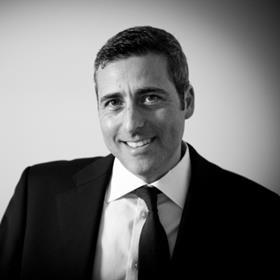Pursuing a career in the legal profession has never been a soft option for those seeking a less stressful working environment. However, over recent years the profession has become ever more challenging.
Technological advances and the commoditisation of many legal services, coupled with clients wanting a 24-hour service without paying exponentially more for it, have made the legal services industry even more competitive, rendering the already stressful life of a lawyer yet more difficult. In 2014, 96% of 1,517 solicitors surveyed by the Law Society reported of negative stress in their job.

Given the nature of the work and the responsibilities inherent in the job, a high level of day-to-day stress is to be expected and is what many lawyers thrive on. However, a trend which accompanies the growing challenges in the profession is the rising number of lawyers who are themselves becoming clients, finding that stress at work is tipping them over into illness. Depression, anxiety disorders, chronic fatigue syndrome and heart conditions are commonplace.
There are few statistics available on the health of the profession, but the fact that last year the SRA launched its ’your health, your career’ programme – to encourage lawyers to discuss the impact that difficulties encountered at work is having upon them – speaks for itself.
Whilst it is true that the profession cannot slow down the march of technology or tell clients to be less demanding, it can still take a look at itself. Working for 12 or more hours for days on end, and remaining on call during evenings and weekends is common across many tiers of the profession. It is not surprising that many more lawyers seem to be developing illness, which impacts upon the rest of their lives.
From within the gilded cage of the profession, it is all too easy to lose sight of how potentially dangerous these deeply engrained working patterns are.
Despite increased awareness of mental illness across society, lawyers can often be too busy, naïve or even proud to recognise that they are falling ill or that the demands of the job are a major cause. Those who do often soldier on rather than seek medical assistance or take steps to alleviate the pressure. Many will regard taking time off or telling HR or their boss that they are struggling as placing their career in jeopardy. Therefore, few lawyers take action, let alone feel comfortable speaking up about their stress levels.

The profession has not, however, turned a blind eye. Many firms take measures to attempt to manage ill health (and meet their duty of care to their lawyers), such as providing access to occupational health physicians, wellbeing programmes and stress-management training courses.
There are, however, more steps which firms can take, such as proactive monitoring of working hours and intervention where lawyers are working excessively, without there being repercussions for that individual’s career progression. Whilst these measures are achievable in larger and more sophisticated organisations, they are much more difficult to implement in a smaller law firm.
However, in those instances where a lawyer does feel able to disclose details of a developing mental illness to their line manager or where absence or erratic behaviour indicates that illness is taking hold, which may constitute a disability under Equality Act 2010, then the obligation for an employer to make reasonable adjustments comes into sharp focus. The reality is that even the most well-resourced law firms can find themselves facing claims that they have not met their legal obligations to make appropriate adjustments. All too often law firms start out with good intentions, by making adjustments to help lawyers who may have developed some form of work induced mental illness, but then find that over time the burden of managing these illnesses in the context of juggling work allocation proves too difficult. This can lead to erratic management decisions, greater litigation risk and a distraction from focussing upon what needs to be done to address the underlying causes of the illness.
Few would say that increased awareness of mental health is anything other than positive, but awareness should also give rise to constructive action. All stakeholders in the profession – firms, lawyers, clients, the SRA and the Law Society – have their part to play.
Howard Hymanson is head of employment and Charlie Thompson is an associate at Harbottle & Lewis LLP.




























No comments yet